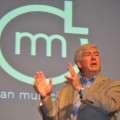
Retail giant Walmart and three beverage companies will send 175 truckloads of water to the beleaguered Michigan city.
Walmart, Coca-Cola, Pepsico and Nestle will donate 175 truckloads of bottled water to the citizens of Flint, Mich., whose lead-tainted water supply has caused a public health emergency.
According to the Associated Press, the donation will include as many as 6.5 million bottles for 10,000 Flint schoolchildren.
In a statement announcing the donations, Beth Harris, a manager at one of Flint’s Walmart stores, said, “Those affected include our own associates, customers and their families.”
“Our associates are proud to be a part of the effort to help our friends and neighbors,” Harris said, according to the Washington Post.
The problems began when the city began using water from the Flint River in April 2014, a move designed to cut costs for a city saddled by a $13 million deficit.
According to Aljazeera America, anti-corrosion agents were not added to the river’s water, which allowed lead from the city’s pipes to leach into the water supply.
You Might Also Enjoy: Walmart Closing 269 Stores, Including All “Express” Locations
Residents began complaining about discolored and foul-smelling water almost immediately, but those complaints were dismissed or minimized by local and state officials. Mounting evidence revealing lead contamination in children as well as studies by the U.S. Environmental Protection Agency finally forced Flint to begin using Detroit water again in mid-October 2015, 18 months after the original switch.
Michigan Gov. Rick Snyder declared a state of emergency in Flint on Jan. 5. A week later he ordered the National Guard to begin distributing bottled water and water filters in the city.
An emergency declaration ordering federal aid for Flint was signed by President Obama 11 days later.
Michigan’s attorney general and the U.S. Department of Justice both have opened investigations into the crisis, according to NBC News.
In a statement, Flint Community Schools Superintendent Bilal Tawwab expressed gratitude for the donations.
“With their generous support, District students will have access to clean drinking water, and more importantly, the ability to focus on their education,” Tawwab said.





